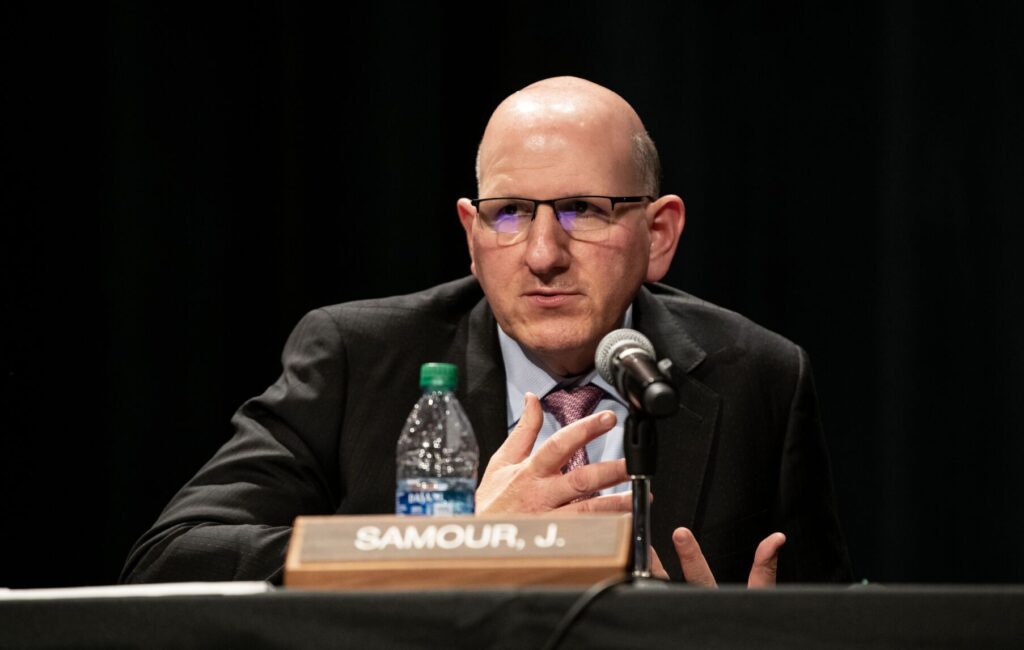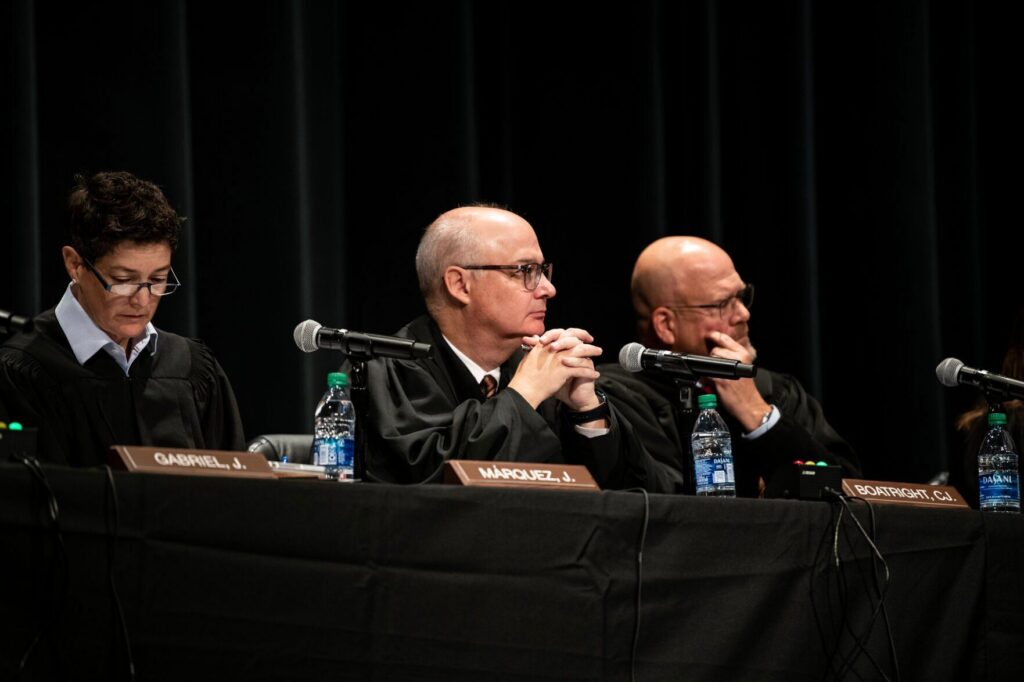10th Circuit grants immunity to Grand Junction, Mesa County officers who fatally shot man 16 times
The federal appeals court based in Denver ruled last week that Grand Junction and Mesa County law enforcement officers could not be held liable for shooting and killing an allegedly mentally ill man in his driveway.
The widow of Steve Alire sued multiple officers, plus the city and county themselves, for excessive force. The defendants asserted qualified immunity, which is a judicially created doctrine shielding government employees from civil lawsuits unless they violate a person’s clear legal rights.
A three-judge panel of the U.S. Court of Appeals for the 10th Circuit agreed the officers deserved immunity because no prior court decision put them on notice that shooting and killing Alire was unreasonable. Specifically, the panel focused on the fact that Alire had brought an airsoft gun outside when confronting the officers, who may not have been aware it was not a lethal firearm.
“With 20/20 hindsight and from the safety of a bench, it is easy to scrutinize Defendants. We now know Mr. Alire was mentally unstable, and his airsoft rifle likely threatened no more than a few welts and bruises,” wrote Senior Judge Bobby R. Baldock in the Dec. 20 order. “We have never held officers must wait and see whether a gun shoots real or fake bullets before taking protective action.”
Although the panel unanimously ruled in the defendants’ favor, one judge expressed substantial concerns during oral arguments about endorsing the use of lethal force.
As alleged in the underlying lawsuit, Grand Junction police received a call shortly before sunset in March 2020 that Alire had brandished a knife close to a group of men playing basketball. Going into his nearby home, Alire allegedly retrieved an assault-style rifle, placing it on his driveway and pointing it at the men.
Grand Junction police and Mesa County sheriff’s deputies established a perimeter around Alire’s house and spoke to him using a public address system. Alire exited with his airsoft gun, which can shoot small projectiles. He allegedly threw it toward the officers and yelled, “It’s just a pellet gun.”
After repeatedly going into and exiting from his house, Alire continued to throw or kick the gun toward police. The third time, officers fatally shot him 16 times.

Photo Credit: kali9 (iStock).
In June 2023, U.S. District Court Judge Gordon P. Gallagher dismissed the excessive force and related claims from Alire’s widow.
Gallagher assumed the defendants violated Alire’s constitutional rights, but found the plaintiffs had failed to cite any prior court case establishing that police would act unreasonably by firing upon a person who behaved as Alire did. Instead, the plaintiffs only pointed to cases in which officers’ own actions led to the use of force.
“The Amended Complaint describes no aggressive steps that officers took toward Mr. Alire that can be said to have contributed to the use of deadly force against him,” Gallagher wrote.

U.S. Magistrate Judge Gordon P. Gallagher appears before the U.S. Senate Committee on the Judiciary on Dec. 13, 2022 for his confirmation hearing.
During oral arguments to the 10th Circuit in March, Chief Judge Jerome A. Holmes questioned the defendants’ attorneys at length over the propriety of the shooting. As alleged, it was not clear that Alire was even holding the gun or pointing it at anyone when officers opened fire.
“Why could they shoot him?” asked Holmes.
“There is no constitutional requirement that police officers wait for a gun to be pointed at them before they’re allowed to use lethal force,” responded Eric M. Ziporin, who represented the Grand Junction defendants.
Why would officers be concerned, Holmes pressed, that Alire would turn the gun on them when he repeatedly pushed it away from him?
“Would it be your view that when he walked out the first time and had the gun, the officers had the right to shoot him then?” Holmes asked.
Yes, said Ziporin.
“There’s a constitutional requirement that you face a threat. A threat to you or a threat to the public,” Holmes continued. “If someone walks out with their gun like this, across their chest, and walks out of the home, you mean to tell me you can shoot him dead right then?”
Holmes posed the same question to the lawyer for the Mesa County defendants. Attorney Chris W. Brophy conceded that if the hypothetical person was not pointing the gun at anyone, police could “probably not” say there was a threat.
Ultimately, the panel upheld Gallagher’s reasoning. Because the officers did not escalate the encounter and create a need to shoot Alire themselves, the court granted them immunity.
“No case warned Defendants that they needed to wait and see what came out of Mr. Alire’s gun,” concluded Baldock.
The case is Estate of Alire et al. v. Wihera et al.











